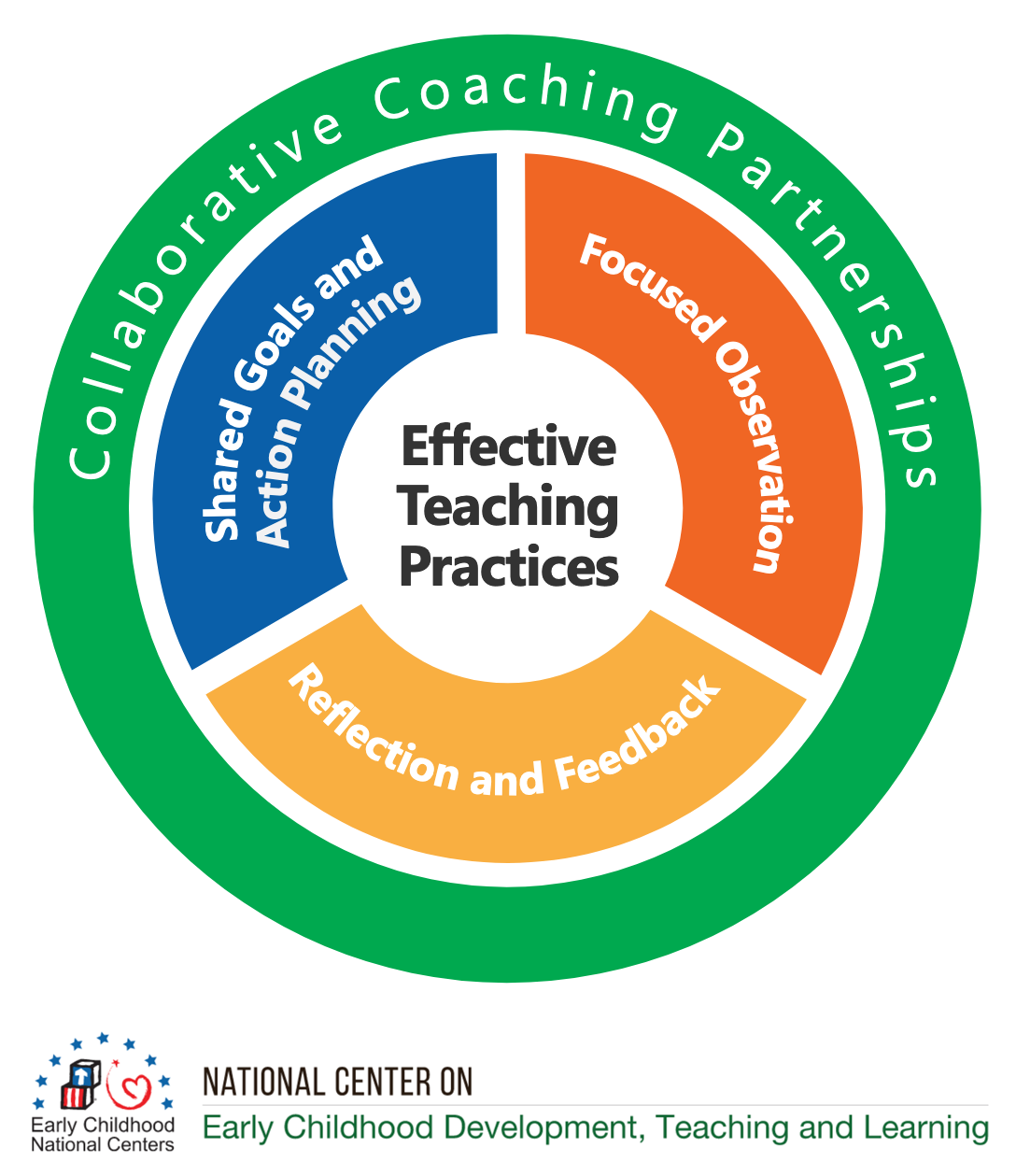
SRI Education researchers are conducting an evaluation of the Pyramid Model, a three-tiered framework that supports early childhood education (ECE) teachers in preschool classrooms. The main goals of the Pyramid Model are to support ECE teachers as key figures in promoting the social-emotional skills and competence of children with and without disabilities so that all children can learn, develop, and grow in a positive and safe environment.
This 5-year project is funded by a federal Department of Education Innovation and Research (EIR) mid-phase grant to Metropolitan Nashville Public Schools. Mid-phase grants fund the implementation and rigorous evaluation of evidence-based programs to understand program impacts and how to scale them widely. In this study, SRI is focused on examining the supports and coaching that ECE teachers most need and benefit from to implement the Pyramid Model with fidelity in both preschool and kindergarten classrooms.

Practice-based coaching (PBC) is a form of professional development that uses a cyclical process to support teachers in using effective practices that lead to positive outcomes for children1 (See Figure 1). There are three components of PBC that occur within the context of a collaborative coaching partnership: shared goals and action planning, focused observation, and reflection and feedback. In partnership with the teachers, coaches are transparent about what the goals are and what the coaching process looks like as a whole. Together, the coach and teacher complete a coaching agreement that lays out each of their roles and commitments, ensuring that there is a shared understanding of what the coach is doing during classroom observations. In PBC, coaching is considered a supportive place for teachers to grow and expand their skills, separate from supervision by a principal or teacher evaluation process.
First, teachers complete a strengths and needs assessment which then informs a goal-setting discussion with their coach. During this discussion, teachers collaborate with their coach to select their goals, create an action plan, and identify their preferred coaching strategies (e.g., modeling, focused data collection, videotaping for teacher reflections). Next, the coach completes a focused observation of the teacher’s instruction and schedules a debriefing meeting with the teacher that includes reflection, supportive feedback to recognize successful implementation of Pyramid Model practices, and constructive feedback to identify areas in need of additional support. After this discussion, the coach and teacher decide together if the current action plan has been completed or if a new action plan is needed.
In prior research studies of Pyramid Model, the developers of the intervention and PBC provided the coaching. In this project, PBC is provided by new staff, hired by the district, who either have experience coaching ECE teachers and/or experience in preschool classrooms and understand how to promote young children’s social emotional skills. Master trainers from Vanderbilt and the University of South Florida provide professional development to these local coaches and then train the coaches and teachers together on how to use the Pyramid Model strategies in their classrooms. Coaches and teachers work together through the PBC sessions over the course of the school year to support PM implementation that is individually tailored to their teaching, classroom, and students’ needs.
How do ECE teachers react and respond to this coaching model? The team spoke with participating ECE teachers and asked them how PBC compares to other coaching they have received, how PBC has supported their classroom practices, and how PBC helps them to address children’s challenging behaviors. Overall, teachers reacted quite positively to the PBC supports, as reflected in illustrative responses below.
This study has helped the team of developers, researchers, and district administrators understand how to support teachers in a way that results in sustainable change in practice. Not only did teachers perceive the coaching to be helpful, but preliminary findings also suggest that PBC led to more effective teacher practices in the classroom. In an upcoming post, we will share what SRI evaluators learned about the impact of the Pyramid Model’s on teachers’ classroom practices and children’s self-regulation, social-emotional, and academic skills. In late 2022, we also hope to share the findings from the second goal of the project – how the Pyramid Model and PBC supports can be adapted and expanded to kindergarten classrooms to support children’s transition to kindergarten and to meet the different expectations and demands of elementary classroom settings.
Citation:
1 Snyder, P., Hemmeter, M.L., & Fox, L. (Eds). (2022). Essentials of practice-based coaching: Supporting effective practices in early childhood. Baltimore: Brookes.
Topics: Early childhood Multi-tiered systems of support Social-emotional learning
Tags: Early Childhood Multi-tiered Systems of Support Social-emotional skills
